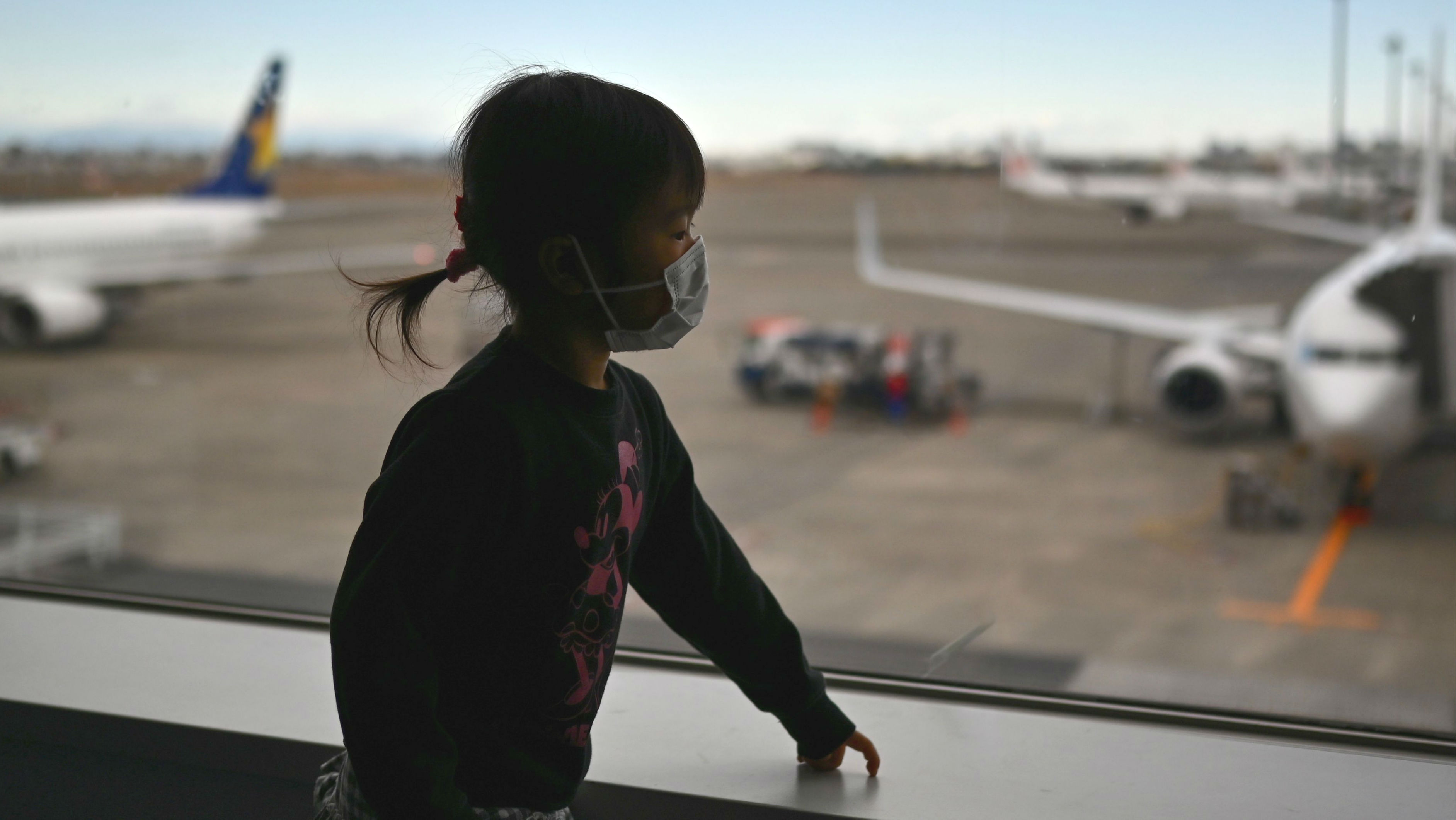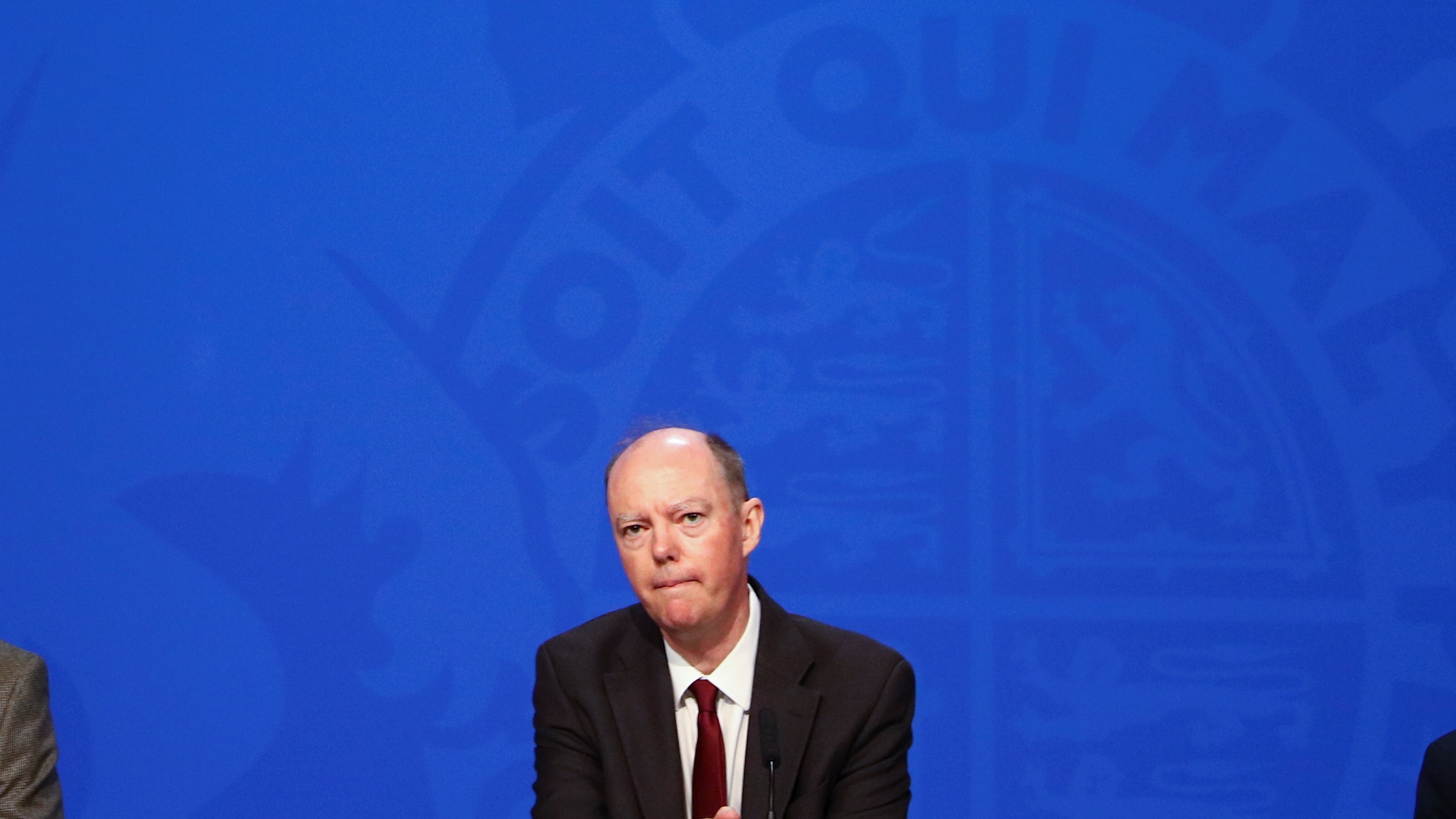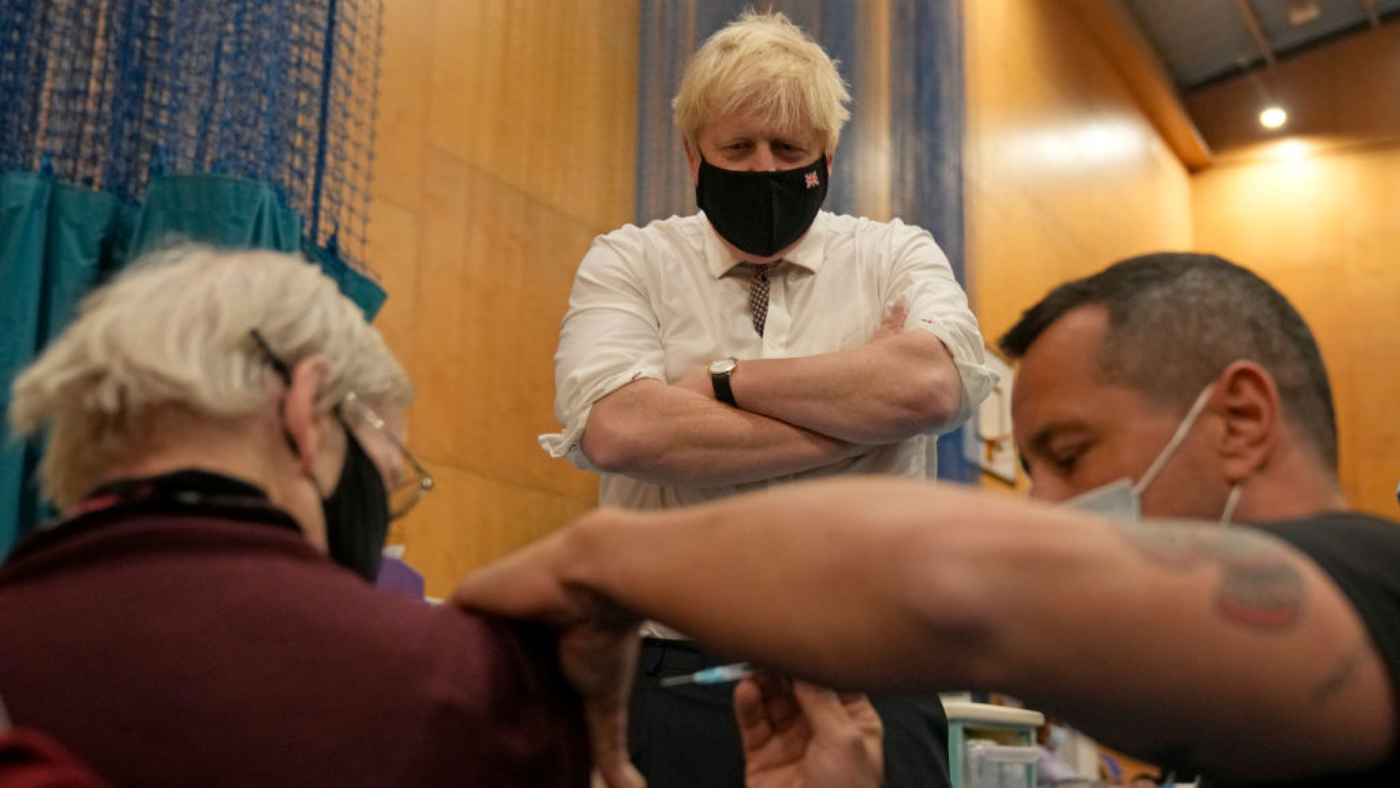How to talk to children about the coronavirus
Pointers for keeping both kids and yourself calm from The Week Junior editor-in-chief Anna Bassi

A free daily email with the biggest news stories of the day – and the best features from TheWeek.com
You are now subscribed
Your newsletter sign-up was successful
An epidemic can be a scary time for parents. With the World Health Organization (WHO) declaring the coronavirus a global emergency last Thursday and the UK reporting its first cases of the virus a day later, it’s only natural to feel a sense of unease.
But take a deep breath. Many children are already worried by what they’re hearing about the outbreak, and although the daily updates about the virus are alarming, it’s really important to remember the impact these headlines can have on young people. To save them (and yourself) from unnecessary anxiety, there are a few simple things that you can say and do.
Here are some pointers for keeping kids calm and holding a panic-free conversation about coronavirus.
The Week
Escape your echo chamber. Get the facts behind the news, plus analysis from multiple perspectives.

Sign up for The Week's Free Newsletters
From our morning news briefing to a weekly Good News Newsletter, get the best of The Week delivered directly to your inbox.
From our morning news briefing to a weekly Good News Newsletter, get the best of The Week delivered directly to your inbox.
1. Be aware of your own behaviour
It’s important that parents and caretakers understand the effect their own behaviour can have on children. If you’re visibly upset or react in a way that suggests you’re fearful, they’ll take their cues from you. Just remember to stick to what we know about the outbreak, rather than fixating on worst-case scenarios.
2. Tell them the facts
Scary headlines attract attention and help sell newspapers but they don’t always tell the whole truth: ensuring you’re armed with facts will help keep coronavirus conversations calm, considered and constructive. So what do we know and how much should you share with a child?
A free daily email with the biggest news stories of the day – and the best features from TheWeek.com
Begin with the basics. Explain that coronavirus is a common virus across the world: the common cold and flu are both caused by types of coronavirus. This new (novel) form of the virus was first identified in the Chinese city of Wuhan at the end of last year. Symptoms include fever and a cough. A majority of people who are infected are expected to experience mild symptoms and make a full recovery within a week.
As of 3 February, there were just two confirmed cases of the new coronavirus in the UK – both of them in York. These two patients are receiving specialist medical care. By comparison, more than 17,000 cases have been confirmed in China, with all regions affected. Most of the 362 people who have died so far in China are known to have been in poor health already. No one in the UK has died. Sharing this information should help reassure children that there is no immediate risk to themselves, their friends or their family.
3. Explain what efforts are being made to contain the virus
Travel in and out of the affected areas has been restricted, and scientists are working to develop a vaccine. The UK government is carefully monitoring the situation. Health experts are assessing travellers arriving in UK airports from China, and the Chinese authorities have banned anyone with symptoms of infection from leaving China.
UK Health Secretary Matt Hancock said: “Our world-class NHS is well prepared and we are doing everything we can to protect the public.” Children should be confident that any confirmed cases in Britain will be isolated and treated quickly.
4. Offer practical advice
For the time being, the easiest way to reduce the risk of being affected by viruses of any sort (including the common cold) is to use tissues to cover your nose and mouth when you cough or sneeze; keep hands clean by washing them regularly with soap and water or an alcohol-based rub; and avoid touching the eyes, nose and mouth. It is also wise to avoid anyone displaying symptoms such as a fever or a cough. These are simple common-sense habits for children to adopt, and should help them feel as though they’re able to exert some control over their circumstances.
Events like this can be very scary for children, so focusing on the known facts rather than fixating on worst-case scenarios will allow your child to process the situation and keep it in perspective. However worried you may feel, do your best to keep your concerns to yourself, focus on the simple things you can do to control events, and make sure your child understands that you will do everything in your power to keep them – and yourself – safe.
Anna Bassi is editor-in-chief of The Week Junior, the award-winning weekly news magazine for eight– to 14-year-olds
-
 The Olympic timekeepers keeping the Games on track
The Olympic timekeepers keeping the Games on trackUnder the Radar Swiss watchmaking giant Omega has been at the finish line of every Olympic Games for nearly 100 years
-
 Will increasing tensions with Iran boil over into war?
Will increasing tensions with Iran boil over into war?Today’s Big Question President Donald Trump has recently been threatening the country
-
 Corruption: The spy sheikh and the president
Corruption: The spy sheikh and the presidentFeature Trump is at the center of another scandal
-
 The tricky science behind reviving ‘zombie viruses’
The tricky science behind reviving ‘zombie viruses’feature 48,500-year-old pathogen poses no risk to humans, but scientists hope to learn more about impact of melting permafrost
-
 The Week Unwrapped: Immunity, Tunisia and Big Brother
The Week Unwrapped: Immunity, Tunisia and Big Brotherpodcast Will a drug called Evusheld cut Covid deaths still further? Is the Arab Spring over? And are we ready for the return of reality TV?
-
 ‘Chris Whitty should not be subject to ignorant public attacks by politicians’
‘Chris Whitty should not be subject to ignorant public attacks by politicians’Instant Opinion Your digest of analysis from the British and international press
-
 ‘The NHS will need huge amounts of understanding by patients’
‘The NHS will need huge amounts of understanding by patients’Instant Opinion Your digest of analysis from the British and international press
-
 ‘Protect the NHS is Boris Johnson’s war cry. But protect it from whom?’
‘Protect the NHS is Boris Johnson’s war cry. But protect it from whom?’Instant Opinion Your digest of analysis from the British and international press
-
 ‘Government should stick to its guns on Plan B’
‘Government should stick to its guns on Plan B’Instant Opinion Your digest of analysis from the British and international press
-
 ‘Many more people are realising how bad England’s Covid situation is’
‘Many more people are realising how bad England’s Covid situation is’Instant Opinion Your digest of analysis from the British and international press
-
 ‘Booster jabs are like handing out extra lifejackets to people who already have lifejackets’
‘Booster jabs are like handing out extra lifejackets to people who already have lifejackets’Instant Opinion Your digest of analysis and commentary from the British and international press